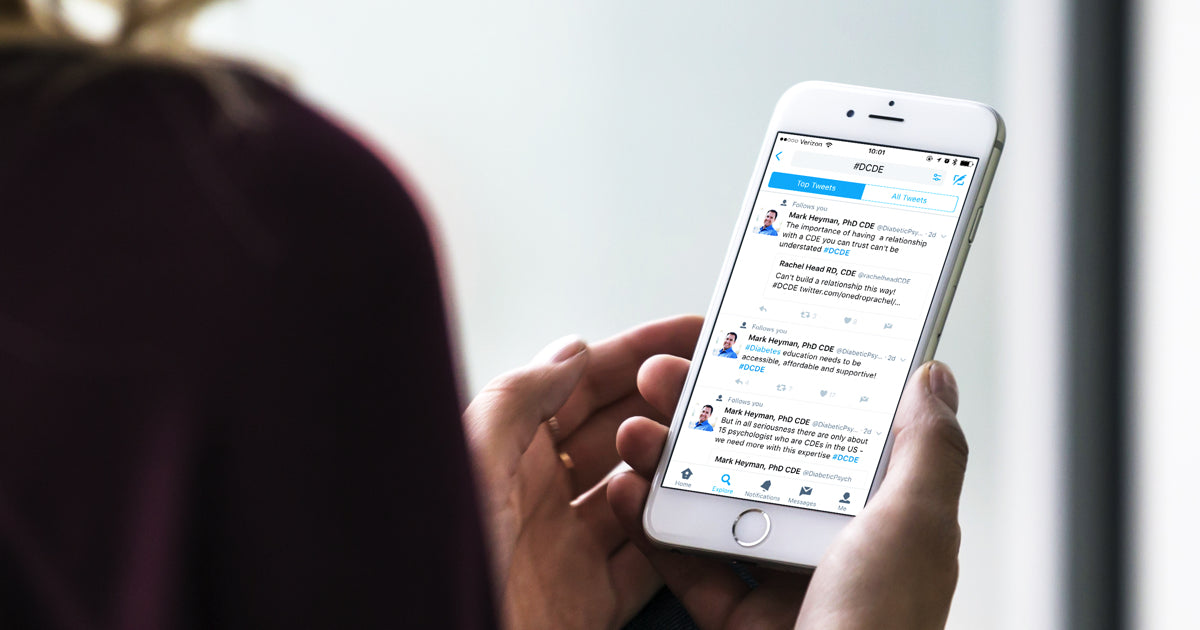When you think about where to get information about diabetes, does Twitter ever come to mind? If not, I would encourage you to check it out. Twitter has a really active community of people with diabetes who are friendly and ready to help. In fact, every Tuesday from 9-10p Eastern, Diabetic Connect hosts a Twitter chat (#DCDE) with a different topic and guest each week. Last week, the One Drop | Experts team joined #DCDE for a twitter chat called Diabetes Eduction Goes Mobile: Increasing access and improving outcomes through remote CDEs. We got to hear what about diabetes education has been helpful and what's not been helpful and what folks would really like to get from a diabetes educator.
A Certified Diabetes Educator (CDE) is a licensed health professional who specializes in diabetes and diabetes management. CDEs help people understand and manage their diabetes.The discussion was fast and furious, and we sure learned a lot. You can read the whole chat by going to Twitter (www.twitter.com) and typing #DCDE in the search box. Here are the most important things I took away from this Twitter chat:
- People with diabetes don't see a CDE often enough: Most people tweeted that they rarely see a CDE as part of their regular diabetes care. After they are diagnosed, the only time that many people ever see a CDE is when they start on an insulin pump or CGM. People want more access to CDE as part of their regular diabetes care.
- It's not easy to access diabetes education: Speaking of getting more access to CDEs, most people don't have easy access to a CDE. This is because the don't know where to find one, there is not one close by, or their insurance won't pay for the visit.
- Relationship is key: Having an ongoing, supportive relationship is a key part of good diabetes education. A good relationship with a CDE makes diabetes education personalized. It lets people talk about their struggles, set goals, and have the CDE hold them accountable. If people don't have regular contact with a CDE, this just isn't possible
- Data + diabetes education: If a CDE had access to a person's diabetes data, including blood sugars, food and activity, they would be able to give valuable feedback that the person with diabetes could use right away. A lot of people wished they had a CDE with that kind of access.
- Diabetes education should be empowering: I was surprised by the number of people who talked about experiences with CDEs who they felt were judging them rather than supporting them. This is not ok - diabetes education is about support and problem solving, not negativity and judgment.
- Focus on emotions: Diabetes education is more than carb counts and insulin doses. Living with diabetes can be stressful and people want their diabetes educator to understand this and work with them to overcome their emotional struggles - or at least point them in the right direction.




